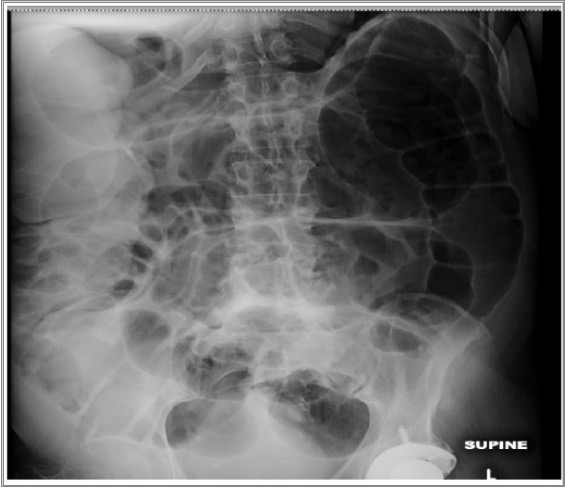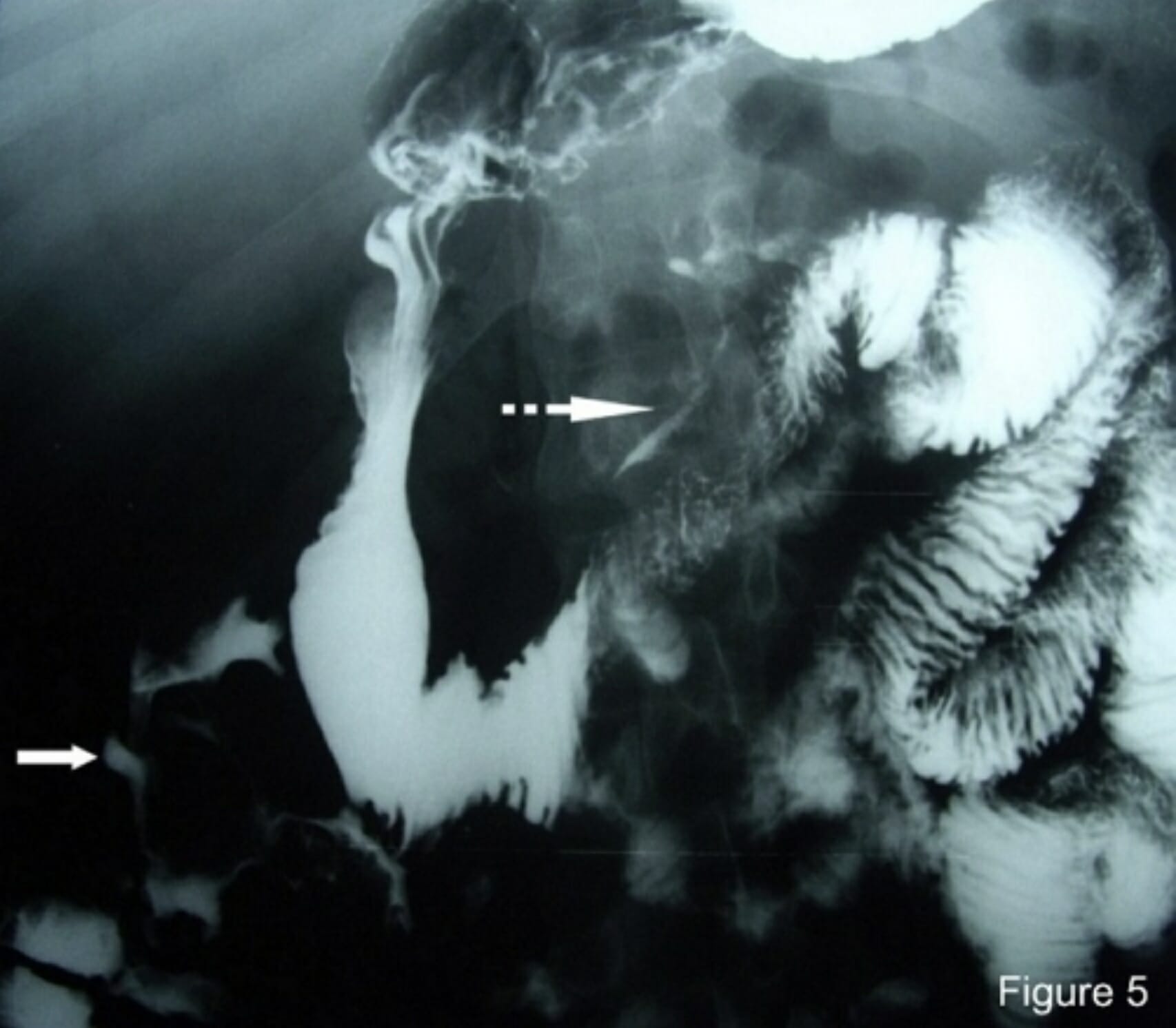Playlist
Show Playlist
Hide Playlist
Large Bowel Obstruction (LBO): Management
-
Emergency Medicine Bord Bowel Obstruction.pdf
-
Download Lecture Overview
00:01 So symptomatic treatment here is key. 00:05 You wanna make sure you give IV fluids, pain medications. 00:08 You wanna consider NG tube placement. 00:11 You wanna consult surgery if there is any issues or concerns. 00:16 And you wanna go ahead and give empiric antibiotics especially if concerned for perforation or gangrene. 00:24 For patients in whom a mass is found or you find a concerning mass, those are patients in whom you would wanna refer them to oncology or give them very close outpatient primary care follow-up. 00:35 Which antibiotics are good for coverage? If there’s a mild to moderate infection, you can give piperacillin-tazobactam or ciprofloxacin plus metronidazole. 00:47 If the infection is more severe, you wanna give stronger antibiotics or more broad spectrum antibiotics rather. 00:54 So ampicillin plus metronidazole or imipenem would be good choices for antibiotics here. 01:02 For Ogilvie’s syndrome, reminder that that is large bowel obstruction that has no evidence of an obstructive component. 01:11 So it’s due to the fact that the autonomic nervous system has gone a little bit awry in the intestines. 01:18 Treatment for those people are bowel rest. 01:20 What does that mean? That basically means you don’t want someone eating or drinking anything. 01:24 You want them to rest their bowels. 01:26 You want there not to be anything kind of flowing through there. 01:29 You wanna give them IV hydration. 01:32 So we’re not having them eat or drink, so we wanna make sure that we’re giving them some kind of IV fluids and you wanna manage their co-morbid conditions. 01:40 So if they have diabetes, if they have an infection, you wanna make sure that you’re going ahead and treating those appropriately. 01:47 If you’re unable to decompress the intestines after 24 hours, there’s a few things to consider. 01:53 So colonoscopy is one. 01:56 Colonoscopy can sometimes help decompress these patients and get their bowels moving again. 02:01 The other treatment is neostigmine. 02:04 So neostigmine can help move the bowels along. 02:07 It can help work on that autonomic dysfunction. 02:11 So in conclusion here, small bowel obstruction, more common than large bowel obstruction. 02:17 The most common causes for SBO are adhesions, tumors, and hernias. 02:22 By far, adhesions are the most common. 02:24 So don’t forget to ask about surgical history. 02:27 Large bowel obstruction, the most common cause is cancer but also possibly volvulus and then, pseudo-obstruction is that Ogilvie’s syndrome. 02:35 Again, don’t forget to ask about prior surgical history. 02:39 You’d be surprised how many patients don’t realize they’ve had abdominal surgery or aren’t forthcoming with that information. 02:45 Labs are generally nonspecific. 02:48 That’s not gonna be the thing that’s gonna seal the deal diagnosis for you, but an elevated lactate may indicate some element of ischemia or decreased blood flow. 02:57 Plan film x-rays can be obtained quickly and do minimize radiation exposure, but for the most part, CT is gonna be the thing that’s gonna help you out the most when making this diagnosis. 03:07 Even if your plain film x-ray is positive, you most likely still will go on and get a CT scan. 03:14 Early surgical consultation is very important for patients with bowel obstructions and whom you’re concerned about perforation, gangrene, or sepsis. 03:21 So,if you’re worried that your patient may have any of those conditions based on your exam or your imaging, or your blood work, go ahead and involve the surgery team early. 03:30 Better to involve them early than to involve them later in the game. 03:34 They would appreciate that.
About the Lecture
The lecture Large Bowel Obstruction (LBO): Management by Sharon Bord, MD is from the course Abdominal and Genitourinary Emergencies.
Included Quiz Questions
Which of the following antibiotics is considered an appropriate first-line single drug to administer to patients with large bowel obstruction and associated mild to moderate infection?
- Piperacillin-tazobactam
- Ceftriaxone
- Clindamycin
- Cephalexin
- Azithromycin
What is the pharmacologic treatment for patients with Ogilvie's syndrome that may help with the autonomic dysfunction?
- Neostigmine
- Atropine
- Physostigmine
- Epinephrine
- Domperidone
Customer reviews
5,0 of 5 stars
| 5 Stars |
|
5 |
| 4 Stars |
|
0 |
| 3 Stars |
|
0 |
| 2 Stars |
|
0 |
| 1 Star |
|
0 |





